There are a number of very popular spices and seasonings that are used in the creation of turkey soup, but some of them you might not have considered.

If you’d like to make your next turkey soup a little more varied or special, you should try these 13 spices and see if they fit the bill!
See Also: 50 Best Soups with Turnips
The 13 Best Spices for Turkey Soup
One of the best ways to add flavor to your turkey soup is by adding a few spices. Try a combination of: cinnamon, nutmeg, cloves, cumin, allspice and coriander. If you want a more intense flavor, you can add a little chili powder or cayenne pepper.
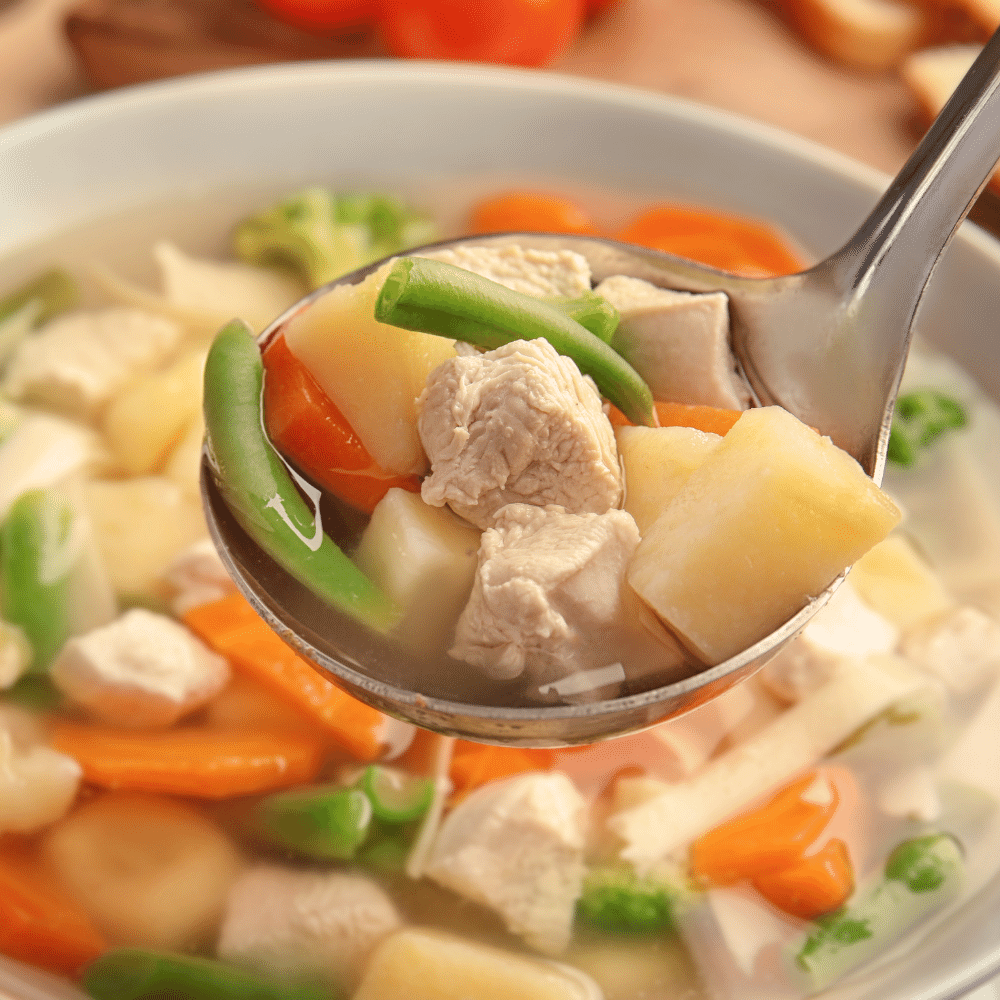
Looking for more options?
Then keep scrolling!
1. Bay leaves

This is a classic choice for soups and stews.
You will want to remove them before serving because they are not meant to be eaten.
If you do not have bay leaves on hand, however, you can add some oregano or thyme instead.
2. Thyme
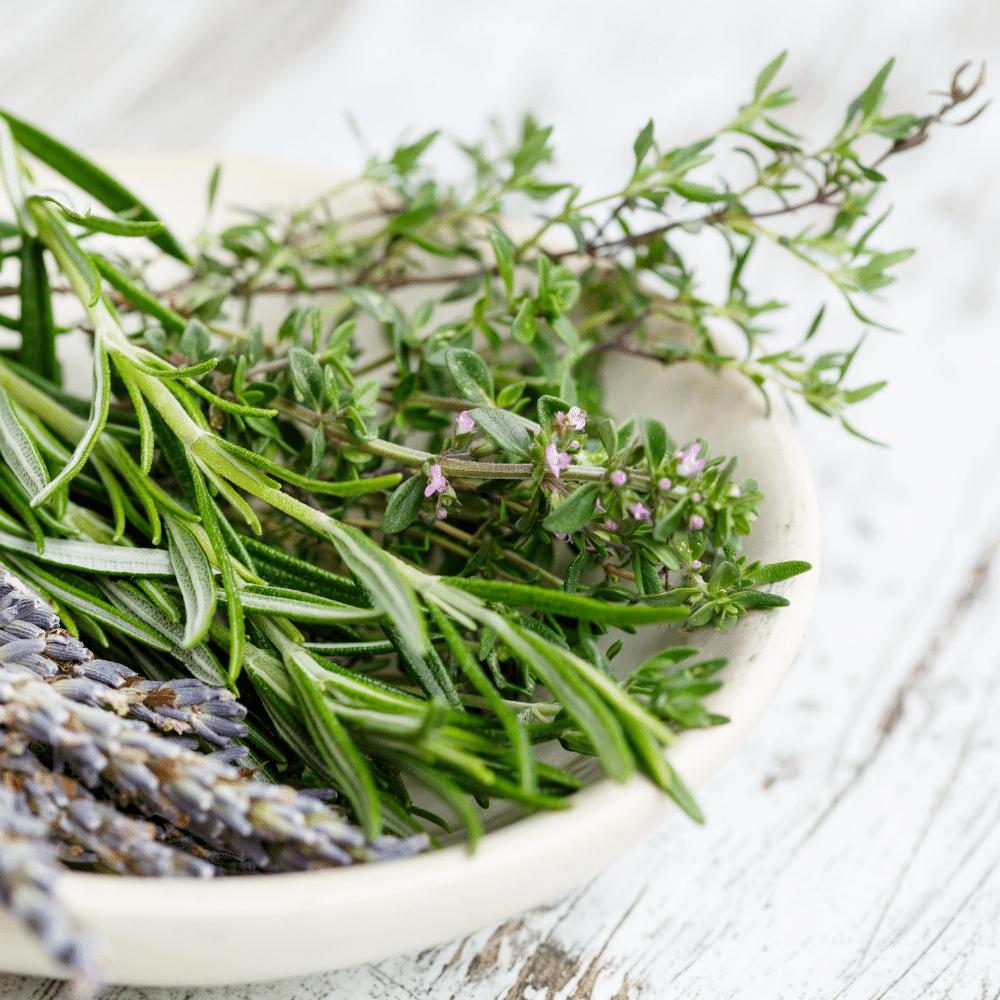
Thyme is great because it combines a sweet aroma with a peppery taste to make a savory, earthy blend that complements the turkey and the vegetables in the soup.
It’s also an easy herb to grow yourself—all you need is a small amount of space and some sunlight—so if you buy organic thyme, you can be assured that it comes from organic growers.
3. Oregano
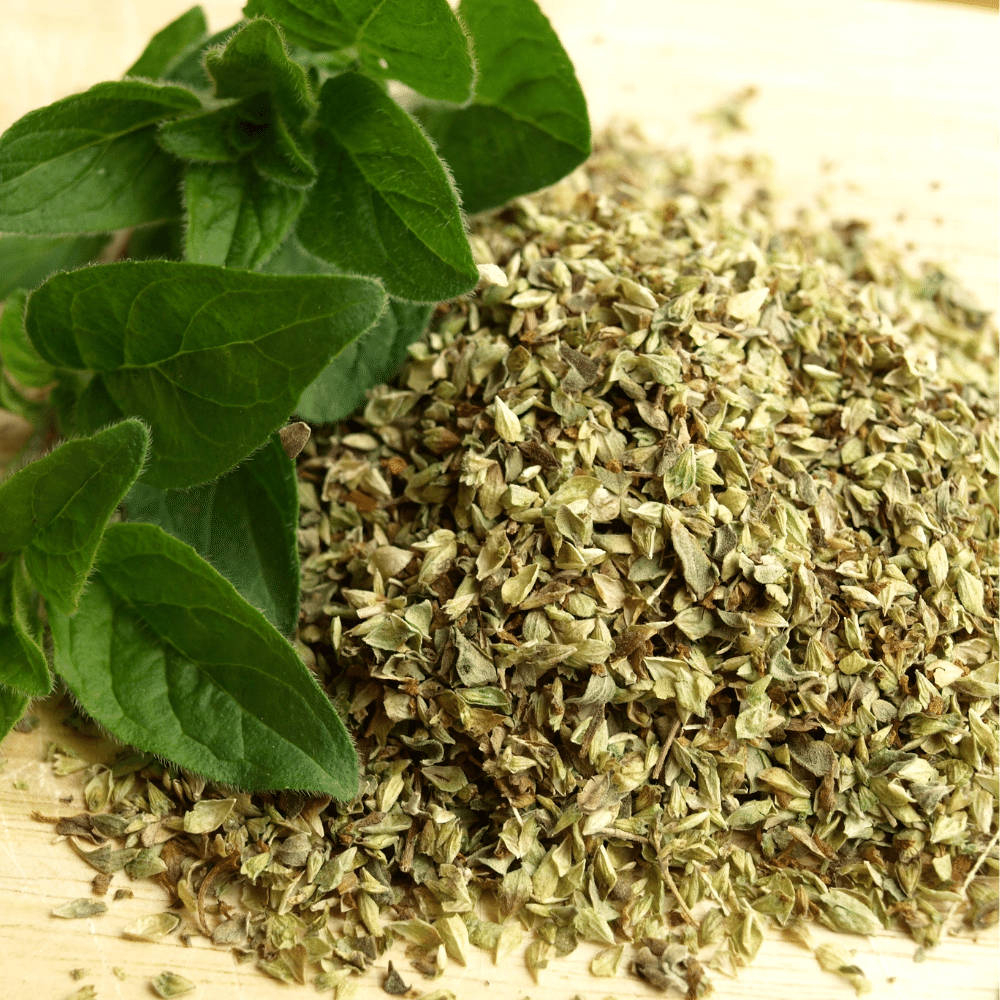
Oregano brings a fresh, slightly peppery flavor to the table and can be added to just about any dish.
It’s one of those spices that can’t be ignored!
Combine it with a few other spices to create a signature blend that works for your dish.
4. Poultry seasoning
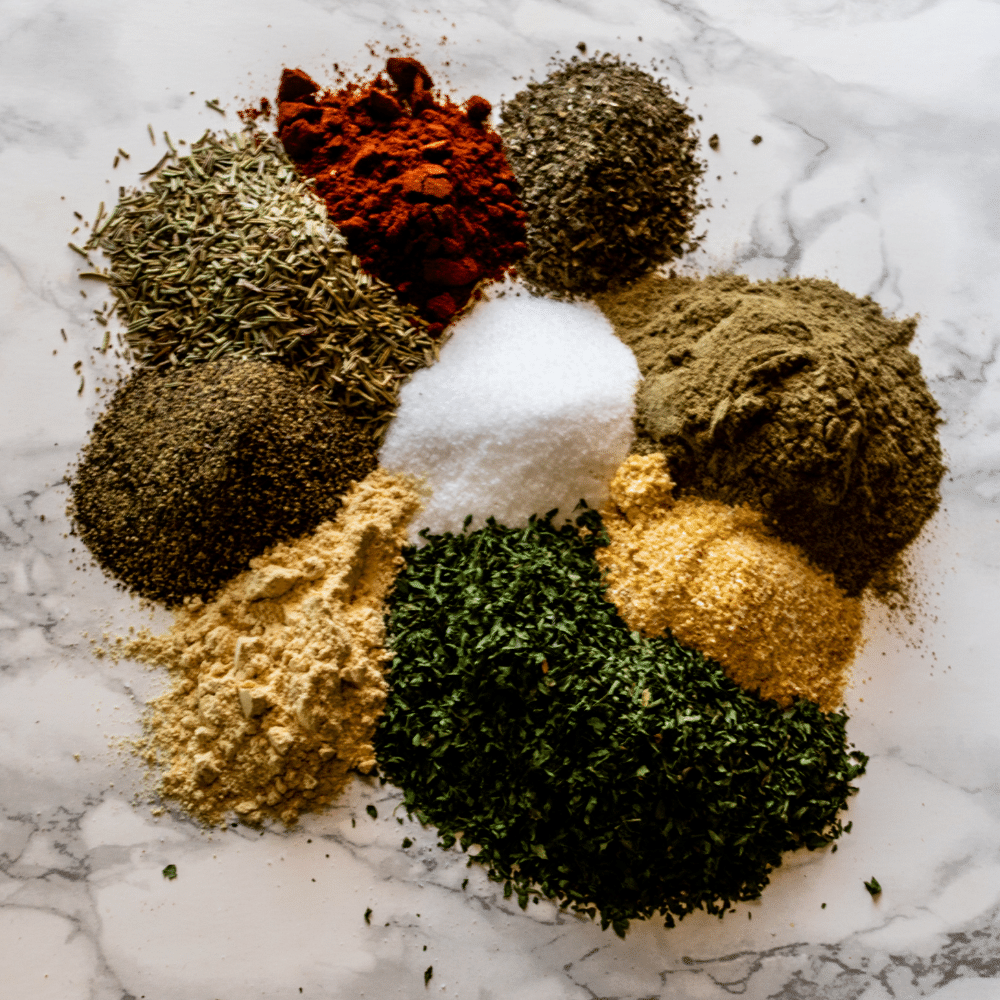
When you’re making turkey soup, you want to make sure the spices you use are flavorful enough to bring out the richness of the turkey and ingredients.
Poultry seasoning is a classic spice blend that’s great for bringing out the best flavors in your soup.
And it’s a great time saver: no need to buy and measure out sage, thyme, marjoram, and nutmeg separately—just grab a spoonful of poultry seasoning and sprinkle it in.
5. Garlic powder
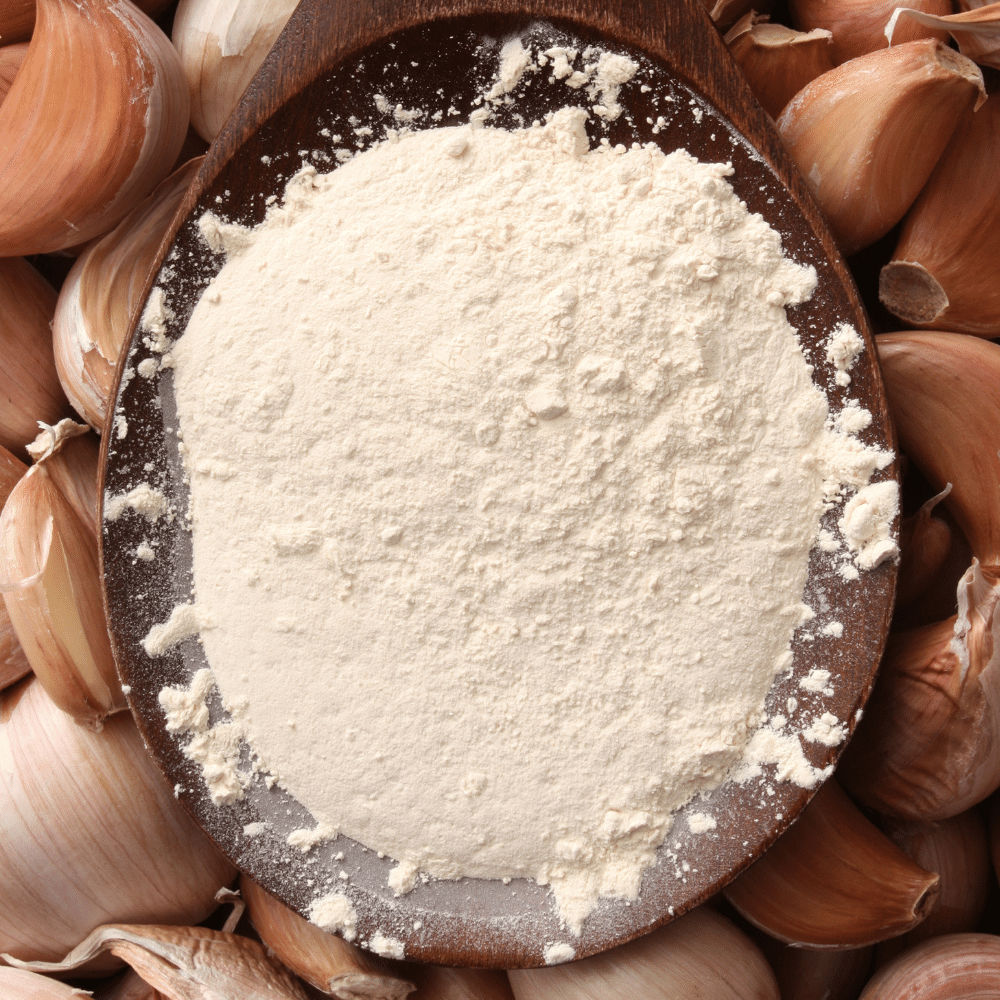
Garlic powder is a must-have in just about every recipe.
That’s true with turkey soup in particular, because the garlic really brings out the flavor of the turkey, and helps to make it taste like more than just a bland dish.
You can add as much or as little garlic powder as you want—just a little bit can be enough to give your soup a nice kick, while a lot will make it taste like you got your turkey from an Italian restaurant.
6. Onion powder

Onion powder is a great way to get the same sweet, savory flavor of onions without the hassle of peeling and chopping.
If you don’t have onion powder, you can use garlic powder.
7. Basil

Basil is a great spice to add to your soup because it has a mild, sweet flavor that won’t overpower the taste of your turkey.
It’s also a great way to add a fresh flavor to an otherwise hearty soup.
You can use fresh basil or dried, whichever you prefer.
If you’re using fresh basil, chop it up and toss it in when you add the turkey.
If you’re using dried basil, add it right before serving so it doesn’t lose its flavor.
Just be sure not to use too much—a little goes a long way!
8. Salt and Pepper

No matter what kind of soup you’re making, salt and pepper will add a layer of flavor that is hard to beat.
Add a dash or two of ground pepper and a pinch or two of salt. You can always adjust these later as needed.
9. Paprika
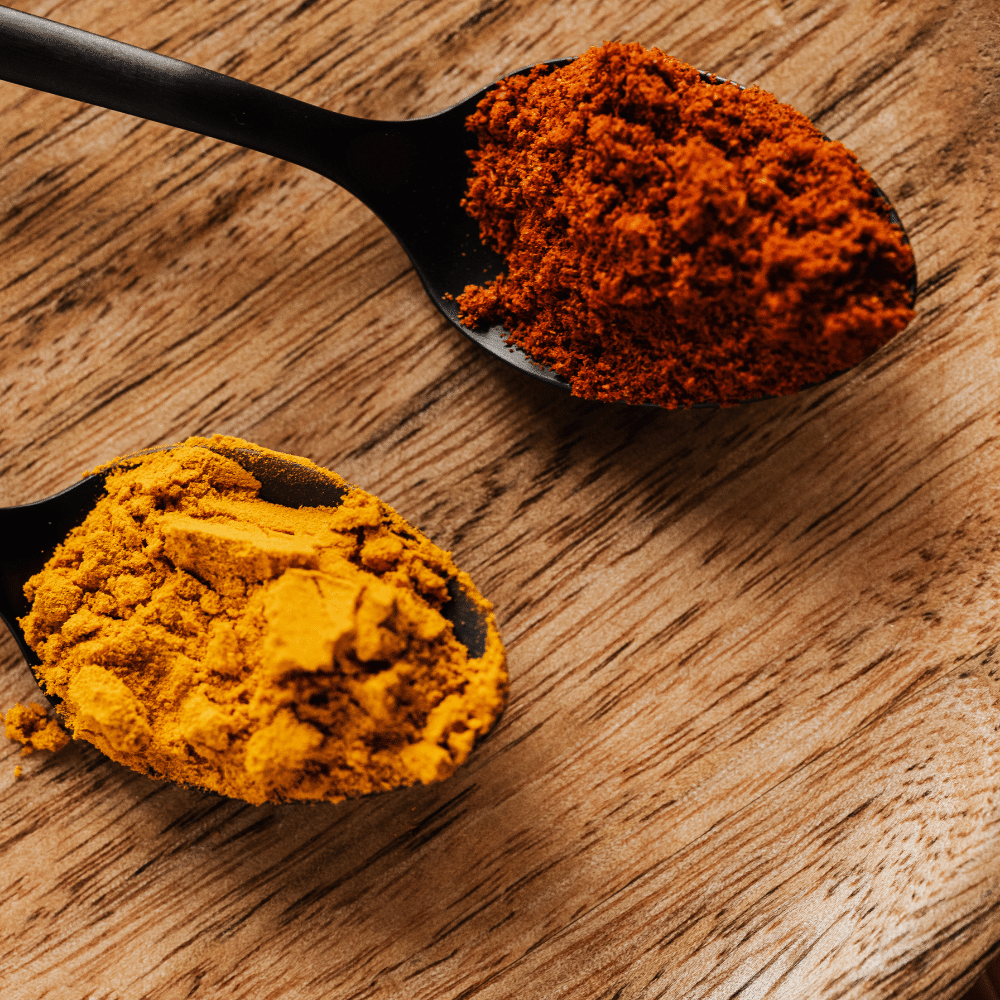
Who doesn’t love the aromatic and slightly spicy spice that is paprika?
It’s a must in any good turkey soup, adding a distinct and delicious flavor.
Paprika can be mild, hot, or smoked, so choose your favorite variety to add depth to your dish.
If you’re looking for a flavorful paprika to bring out the taste of your turkey soup, try one with smoked peppers.
They’ll add a unique flavor that will make your soup even more appetizing.
10. Cumin

Cumin adds a warm flavor to your dish that will make it taste even better than it already does!
You can add this spice on its own or mix it with other spices such as coriander seeds, fennel seed powder, turmeric powder, ginger powder for an even more delicious taste!
11. Coriander
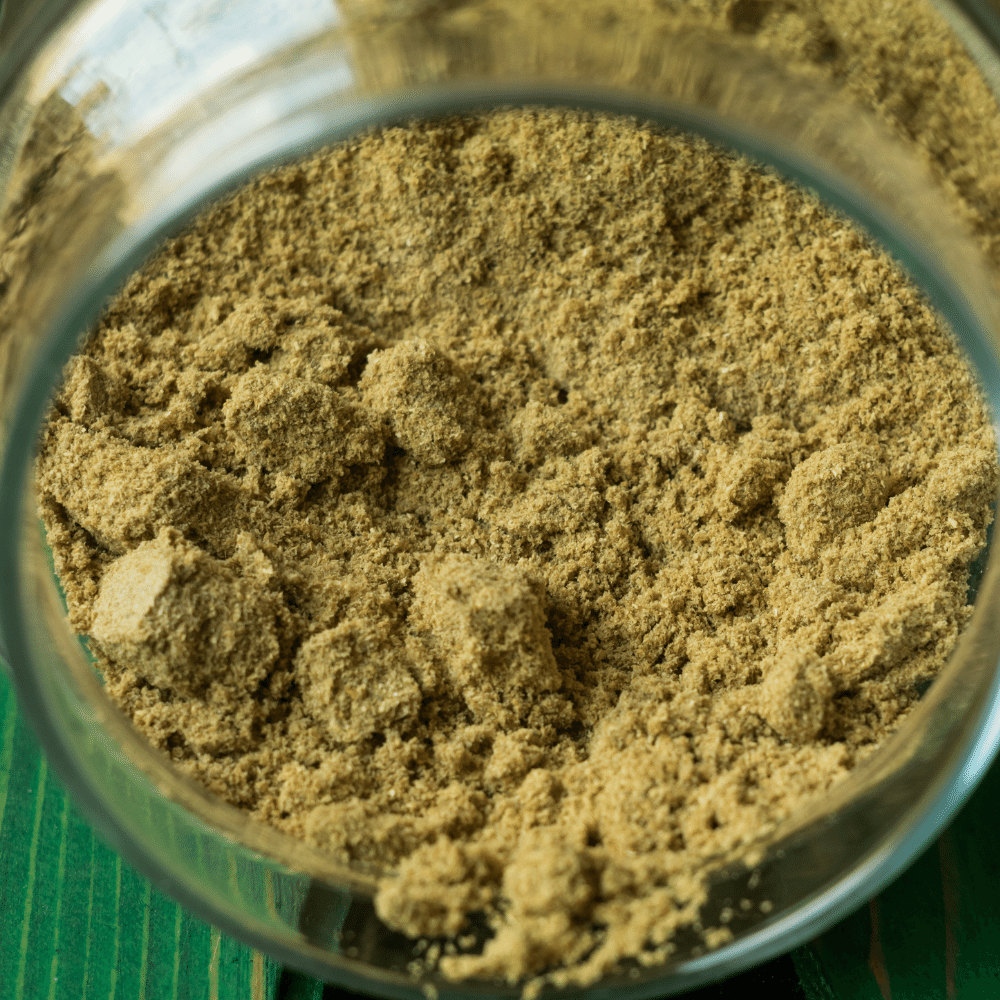
Coriander is a nice option if you want something a little bit exotic and intriguing.
The best part about coriander is that it works well with many other spices, including garlic, cilantro, and cinnamon. This spice is also known to help with digestion.
12. Turmeric

If you’re looking for spices that go well in turkey soup, turmeric is an excellent choice.
This bright yellow spice with a slightly bitter flavor adds a warm, sunny note to the dish, and it’s also one of the healthier options, containing compounds that have been proven to reduce inflammation.
13. Parsley

Parsley has an ancient history as an herbal medicine, and its strong flavor makes it perfect for accentuating the taste of other herbs and spices in your soup.
It’s also often used in potato dishes and salads, so if you buy organic parsley, you can be assured that it comes from organic growers.
How to Choose Which Seasonings to Put in Turkey Soup
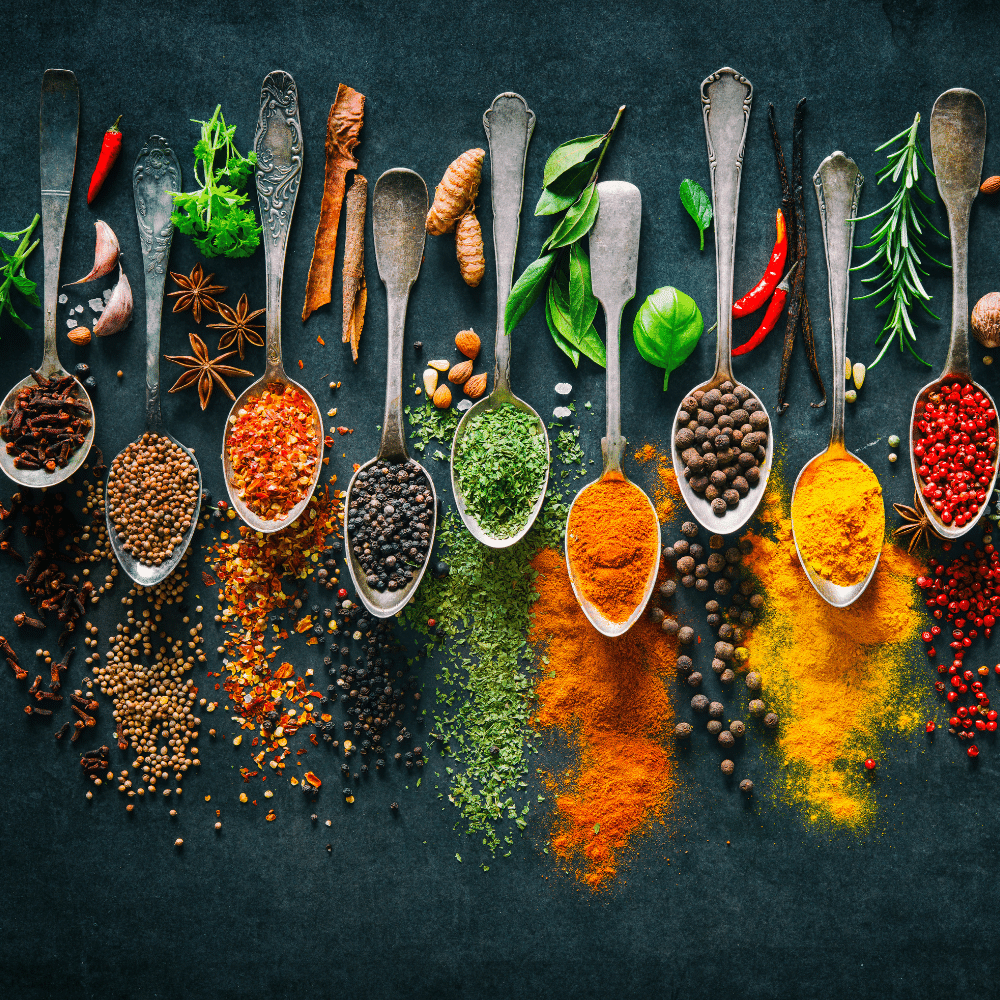
Here’s a quick guide to choosing which seasonings to put in your turkey soup:
1. Pick a Flavor Profile
What kind of soup are you making?
Is it going to be sweet, savory, spicy?
Sweet soups often have cinnamon, nutmeg, and cloves.
Savory soups might have thyme, oregano, garlic, or onions.
Spicy soups might have cayenne pepper, chili powder, black pepper, or red pepper flakes.
2. Choose Your Herbs and Spices Accordingly
Once you’ve chosen the flavor profile of your soup, you can choose which specific herbs and spices will work best.
If you’re making a sweet soup with carrots and onions as the main ingredients, you might want to use cinnamon and nutmeg as your primary seasonings.
If instead your savory soup is based on potatoes and sautéed onions, you might want to use thyme or oregano as the main flavors for that soup.
3. Go with Organic
It’s best to go with organic, non-GMO spices whenever possible.
You can typically find them in the bulk section of your local health food store or online.
I prefer organic because they tend to have more flavor and they’re fresher than regular spices, which are often treated with chemicals or exposed to harsh conditions that zap them of their natural oils.
4. Consider how Much Time You Have
Most of us don’t have all day to sit around and cook a turkey soup.
After all, there are holiday gifts to buy, parties to go to, and people to see.
So when you decide which seasonings you’re going to add, consider how much time you have so that you’ll be able to get your soup in the pot and ready for serving as soon as possible.
If you only have a couple of hours, it’s best to stick with the basics: garlic and onion powder, salt and pepper (be sure not to add too much salt! Turkey is salty enough), maybe a little bit of cayenne pepper for some heat.
If you have a couple more hours, try adding some parsley flakes for a fresh taste.
And if you’re REALLY lucky, and have almost all day to devote to cooking your soup (lucky duck!), then by all means go wild!
Add in some bay leaves, basil, thyme—whatever sounds good and will bring out the flavor of your turkey without overpowering it.
5. Think About What Kind of Vegetables You Have in Your Soup
If you’re using a lot of root vegetables like potatoes and carrots, then you may want to go with an earthy sort of spice.
Try out some marjoram or sage.
The same can be said for any other vegetables you have in the soup—if they’re strongly flavored, go with a spice that has a similar flavor profile!
4 Benefits of Putting Spices in Turkey Soup
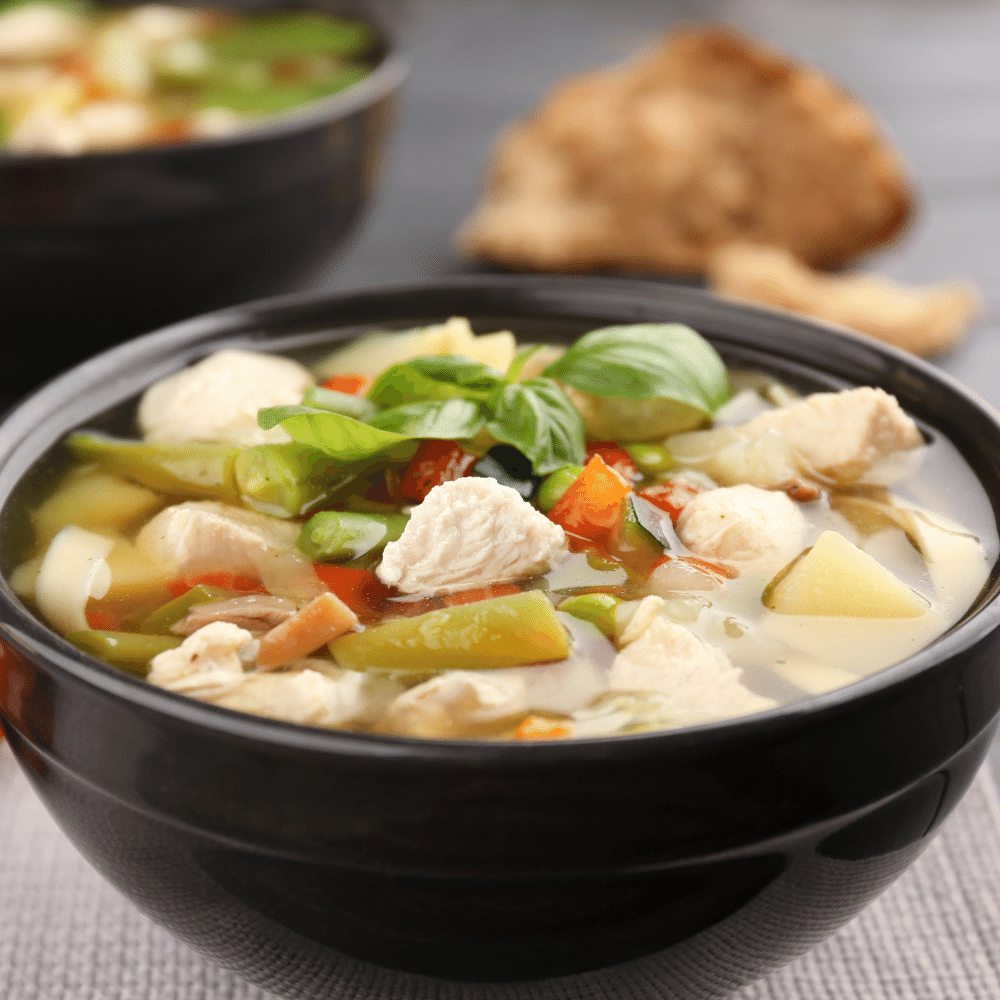
Over the years, you’ve probably heard that adding spices to your foods can make them taste better.
But there are also other benefits of putting spices in foods than just making them more flavorful.
1. Spices Are Good for Your Health
One of the most important things about eating healthy is making sure your body gets enough antioxidants, and spices are full of them!
Antioxidants are what help your cells fight off free radicals, which can cause cell damage.
The more antioxidants you have in your diet, the better your body fights off harmful chemicals.
2. Seasoning Your Food Makes It Tastier
You’ve probably heard it a million times, but it’s worth repeating: seasoning your food makes it tastier!
The benefits of seasoning your food are endless: you can use salt to bring out the natural flavors in your food, plus add a little something extra—like a pinch of cinnamon to top off your pumpkin pie.
Using seasonings in your cooking is also an effective way to make healthy ingredients like vegetables taste delicious.
3. Putting in Spices Makes It Look Prettier
The spice of life is real, guys.
Spices are so much more than just delicious—they’re also beautiful.
They come in an array of different colors, shapes, and sizes.
From the vibrant reds of cayenne to the rich browns of cinnamon, spices provide a way for your food to wear every color of the rainbow.
Spices just make your food look so much better.
The next time you’re making turkey soup, try throwing in some cayenne pepper or paprika to make it look extra festive!
4. Aromatic: Your House Will Smell Good
Adding spices in your soup makes your house smell like a five-star restaurant.
When I put spices in my turkey soup, the whole house will smell so great that it’s like my very own personal candle shop.
The lingering scent is just amazing!
So if you’re trying to impress someone with how good your soup tastes, don’t forget to add some spices!
FAQs
What are some popular spices to use in a turkey soup recipe?
A popular choice for a spicy turkey soup is to use spices like cayenne pepper, paprika, cumin, and chili powder. You can also add some fresh ingredients like jalapenos or serrano peppers for an extra kick. These spices not only add heat but also enhance the flavor of the turkey broth and the overall soup.
How can I create a flavorful broth for my turkey soup?
To create a spicy broth, start with a homemade turkey stock made from the carcass of a roasted turkey. Add a combination of spices such as cayenne, smoked paprika, and cumin to enhance the flavor. You can also include aromatics like onions, garlic, and celery to create a rich, flavorful base for your turkey soup.
Can I incorporate turkey chili into my turkey soup recipes?
Yes, you can incorporate turkey chili into your turkey soup recipes by adding it to the soup base. This will not only provide a delicious, spicy flavor but also introduce more texture and thickness to the dish. To balance the flavors, add some turkey stock and additional vegetables, such as corn and bell peppers, to create a hearty meal.
What are some easy-to-follow recipes for making delicious turkey soup?
For a simple, homemade turkey soup, start by making a turkey stock from the carcass of a roasted turkey. Add vegetables like carrots, onions, and celery to the stock, along with spices such as thyme, rosemary, and bay leaves. For a spicy twist, include spices like cayenne pepper, chili powder, or even a dollop of turkey chili. Simmer the soup in a slow cooker or on the stovetop, and serve with a sprinkle of cheese on top.
How can I adapt a basic turkey soup recipe to suit my personal preferences?
Adapting a basic turkey soup recipe is easy. To make it spicier, add more heat with chili powder, cayenne, or fresh hot peppers. If you prefer a thicker soup, include turkey chili or additional vegetables. For a creamier texture, consider adding some cheese or a splash of heavy cream. Experiment with different herbs, spices, and ingredients to find the perfect combination that suits your taste buds.
Related:
- 18 Spices for Chicken Thighs That Will Transform Your Meal
- 11 Delicious Spices for Haddock to Transform Your Meal
- 17 Unbeatable Spices for Collard Greens You Must Try
- 15 Spectacular Spices for Clam Chowder That Maximize Taste
- The 13 Best Spices For Alfredo Sauce
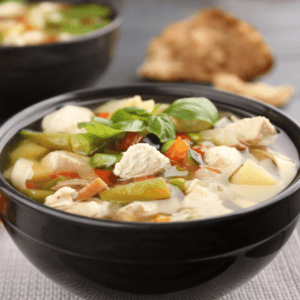
13 Best Spices for Turkey Soup
Ingredients
- Bay leaves
- Thyme
- Oregano
- Poultry seasoning
- Garlic powder
- Onion powder
- Basil
- Salt and Pepper
- Paprika
- Cumin
- Coriander
- Turmeric
- Parsley
Instructions
- Pick any of these spices to add to your soup.
- Prepare the rest of your meal.
- Be ready to eat in no time!
Hi, I'm Benjamin. I love cooking, long walks, and my girlfriend! Here you’ll find simple and delicious recipes that you can make in 30 minutes or less.

